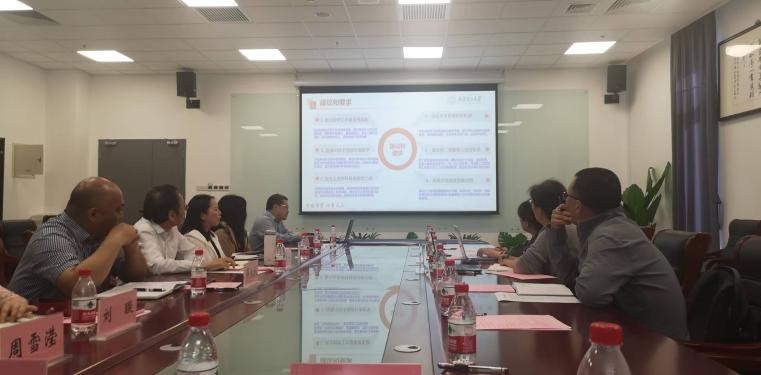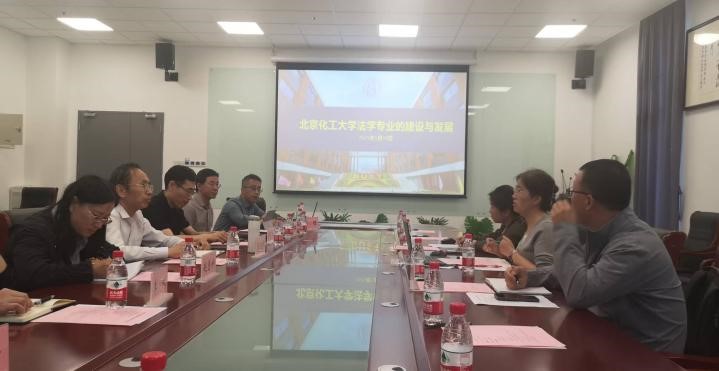BUCT Academic Affairs Office Leads Special Research Forum on Innovations in Public English Teaching Reform and Law Discipline Development
On May 19,Director Liu Qingya of the Academic Affairs Office of Beijing University of Chemical Technology (BUCT) visited the College of Humanities and Law to lead a special seminar focused on reforming public English instruction and advancing the law program. The seminar brought together academic leaders, including Dean Zhang Jianwei, Vice Dean Xue Changli, and key faculty members from the Departments of Foreign Languages, English, and Law. The discussion aimed to promote the high-quality development of liberal arts education at BUCT.
Public English Reform Priorities
Public English teaching reform was the central topic at this forum. In response to evolving societal demands, faculty members from the Foreign Languages Department presented the current reform blueprint. Key proposals include integrating Academic English and ESP modules into English curriculum to address students’ varied academic and professional needs.
To promote pedagogical innovation, adopting a blended teaching model that leverages online and offline resources to boost engagement and learning autonomy was highly recommended. A multi-dimensional assessment system—integrating classroom projects, group work, writing, and speaking—was proposed to more accurately evaluate students’ practical English competencies.
The Academic Affairs Office expressed strong support for these initiatives and emphasized the importance of institutional support through teacher training and streamlined administration to ensure the successful implementation of the reforms.
Law Discipline Enhancement Strategies
This forum also addressed key issues in the development of the Law Department. The proposals featured deepening practical training through collaborations with leading law firms, courts, and prosecutorial offices to expose students to real legal environments.
Faculty development was another priority, with a focus on recruiting “dual-qualified” experts (academically qualified professionals with industry experience), while encouraging current faculty to upskill in legal practice. As for curriculum advancement, it is necessary to reflect national legal priorities and industry shifts while offering new courses in areas such as digital economy regulation and legal aspects of artificial intelligence.
The Academic Affairs Office and the college reached agreement on several key areas, including industry-academia cooperation, employment promotion, talent recruitment, and curriculum development.
Strategic Significance
This forum marks an important step in BUCT’s ongoing efforts to deepen teaching reform and enhance academic programs, which will further clarify reform directions for public English and legal education while aligning strategies across departments. Looking ahead, the College of Humanities and Law will refine its public English reform plan and ensure practical implementation, driving the University’s educational transformation to cultivate new-era liberal arts talents and contributing to the university’s “Double First-Class” initiative.



